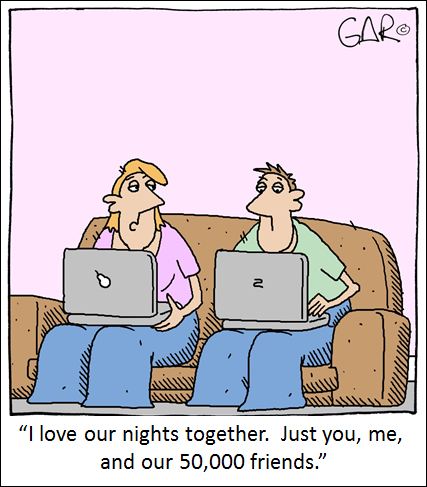Does it pay to be honest on Twitter? Increasingly, the answer may be “no.”
In the past, I’ve written a blog post about my life in social media each time I hit a milestone on Twitter. 10,000 followers, 20,000 followers, etc.
Last week I hit 50,000 followers so I thought I would reflect on one of the philosophical issues I’m dealing with. Maybe it will help and support you in your journey too.
I hit this milestone exactly one year after I hit 30,000 followers. If you do the math, that’s 400 new followers every single week. And actually, it has been a lot more than that because I still cull all the spammers out of my stream (with the help of my wife). So, to the best of my knowledge, all 50,000 of those folks in my Twitter audience are real people.
I’ve gone back and forth about whether it is worth the effort to evaluate every Twitter follower. In the long run, who cares if I let spammers in the door? So far, I have taken some pride and comfort in knowing that there is nothing fake about my Twitter audience. It is real, it is organic, and it is a very engaging and supportive group. So if I follow you, it means something. I am not “automated.”
But is worth it the time I put into it?
Why spammers help your business
This may sound counter-intuitive, but taking the time to cull spammers might actually be hurting my business and online reputation.
If I were not blocking spam Twitter accounts, I estimate I would be approaching 100,000 followers by now. I’m convinced that the social proof of numbers like “likes,” “followers,” and yes, even a Klout score matter in our online world. Few, if any, people are going to take the time to examine my career and accomplishments before deciding to follow me, read my blog, or even buy my books. But they may look at 100,000 Twitter followers and decide that I am an authority. It is just the way of the world.
I was recently introduced at a speech like this: “I’d like to introduce our keynote speaker Mark Schaefer. He is the author of Return On Influence, has more than 40,000 Twitter followers, and a Klout score of 72. Please welcome him.” So, this idea of social proof even lends validation in the offline world!
Being honest. A fool’s errand?
So, in review, I am probably wasting resources by cleansing my Twitter account. Nobody really knows or cares about it, I’m probably the only blogger doing it, and it might even be hurting my business in some way.
But I’ve decided to keep doing it.
Sometimes it doesn’t matter what other people think or know. It matters what I think and know. I’ve come this far without “doping” my Twitter stream with fake accounts to inflate the numbers. I just can’t quit now. If somebody asks me how many Twitter followers I have, I don’t want a voice in the back of my head saying, “yeah, but most of them are not even real.”
In 2009 I wrote a little manifesto called “Why I Block on Twitter.” I still believe in this:
1) My Twitter Tribe matters. If I follow you, I choose to do so. No auto-follows, ever. Before I follow, I have read your bio, some of your tweets and probably clicked your link. I have a quality audience and it’s staying that way.
2) I want an audience to be proud of. This probably sounds old-fashioned but I don’t want to do anything in my life that I wouldn’t be proud to disclose to my children. And if they examined my Twitter audience, I would not want them to see a bunch of nymphs peddling their videos. Anybody can see who you’re following. What does your audience say about you?
3) I want to protect you. If I block the spamaholics I keep them from my tweets and I keep them, in a small way, from you. I see so many of these folks who copy “Follow Friday” lists trying to lure followers. No. Stay away from my friends dammit.
4) Because I just do not want to play that game. I’m not going to be passive and imply that what they’re doing is OK.
Blocking sends a message. If we ALL blocked them, they would have to go away, right?
What do you think? Would you spend the time to go through 400 new Twitter followers every week?



